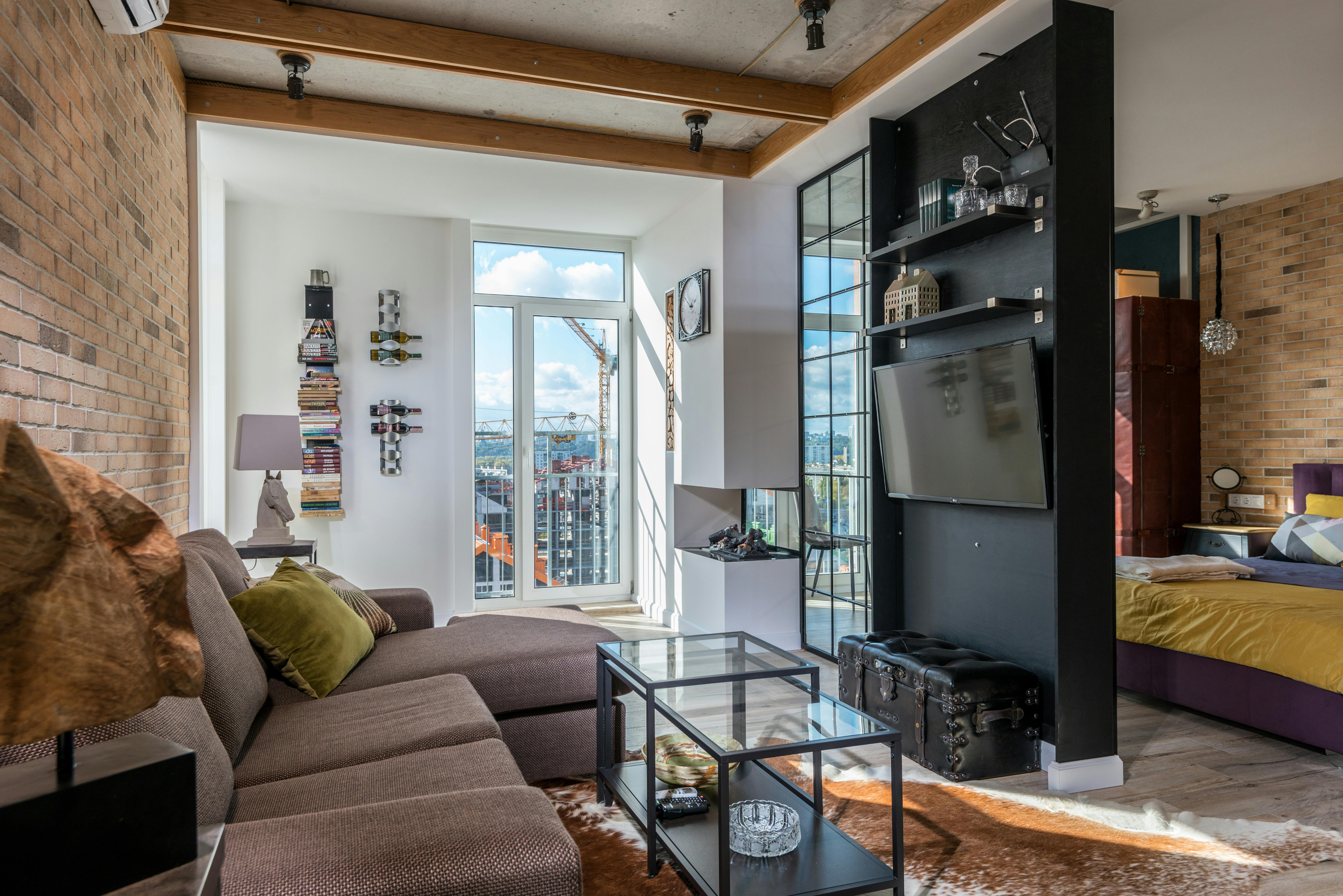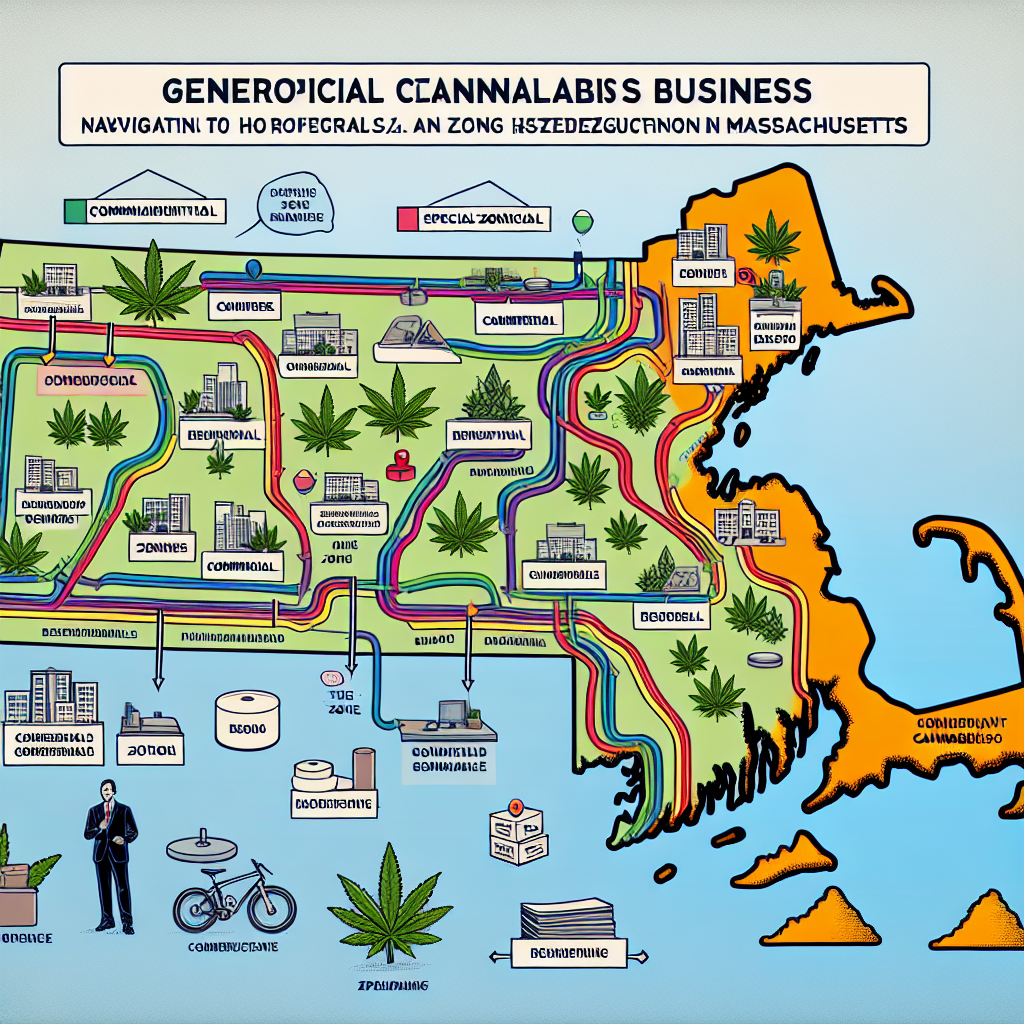So you’re interested in starting a cannabis business in Massachusetts? Well, you’re in the right place! Navigating the complex world of zoning regulations can be daunting, especially when it comes to the booming cannabis industry. However, fear not! In this article, we will guide you through the ins and outs of zoning regulations for cannabis businesses in Massachusetts, helping you navigate the process with ease and confidence. Whether you’re planning to open a dispensary, a cultivation facility, or a manufacturing operation, get ready to embark on your exciting journey with this essential knowledge at your side. Let’s dive in!
Understanding the Cannabis Industry in Massachusetts
The cannabis industry in Massachusetts has experienced significant growth and development in recent years. With the legalization of recreational marijuana in 2016, the state has become a hotspot for cannabis entrepreneurs and businesses. However, navigating the complex landscape of regulations and zoning requirements can be challenging. This article aims to provide a comprehensive guide on understanding the cannabis market in Massachusetts, the key regulations and licensing requirements for cannabis businesses, the importance of complying with zoning regulations, and various strategies to successfully navigate through the process.
Overview of the Cannabis Market in Massachusetts
The cannabis market in Massachusetts has witnessed a rapid expansion since the legalization of recreational marijuana. As of now, there are numerous opportunities for entrepreneurs to establish cannabis businesses across the state. From cultivation and processing facilities to retail dispensaries, the industry offers a wide range of possibilities. However, it is important to note that regulatory compliance is crucial for operating in this sector. Understanding the market dynamics, consumer preferences, and competition will be vital to successfully establish and grow a cannabis business in Massachusetts.
Key Regulations and Licensing Requirements for Cannabis Businesses
Before venturing into the cannabis industry in Massachusetts, it is essential to familiarize yourself with the key regulations and licensing requirements. The Massachusetts Cannabis Control Commission (CCC) is responsible for overseeing the licensing process and enforcing regulations. Applicants are required to undergo a thorough background check, provide detailed business plans, and comply with strict security and operational guidelines. Additionally, local municipalities have the authority to implement their own regulations and zoning requirements, making it crucial to navigate through the local regulatory landscape.
Importance of Complying with Zoning Regulations
Complying with zoning regulations is one of the most critical aspects of successfully establishing a cannabis business in Massachusetts. Zoning regulations dictate where cannabis businesses can operate, including restrictions on proximity to residential areas, schools, and other sensitive locations. Non-compliance with zoning regulations can result in the denial of licenses or expensive legal consequences. It is therefore crucial to thoroughly research and understand the local zoning requirements and engage with local officials and the community to obtain support.
Researching Zoning Requirements
To ensure compliance with zoning regulations, extensive research on local zoning laws is necessary. Each municipality in Massachusetts may have its own specific regulations and restrictions. It is important to review the local zoning ordinances and bylaws to understand the permitted zones for cannabis businesses. Identifying the permitted zoning districts will help in determining suitable locations for cultivation, processing, or retail dispensaries. Additionally, proximity restrictions and buffer zones are crucial factors to consider when selecting a viable location for your cannabis business.
Identifying Permitted Zoning Districts for Cannabis Business
When researching zoning requirements, it is important to identify the specific zoning districts where cannabis businesses are permitted. Each municipality may classify cannabis businesses differently, and it is crucial to understand these distinctions. Some areas might allow cannabis cultivation and processing facilities only in industrial zones, while retail dispensaries may be permitted in commercial districts. Thoroughly reviewing the local zoning regulations will provide valuable insights into the eligible zoning districts for your cannabis business.

Determining Proximity Restrictions and Buffer Zones
Proximity restrictions and buffer zones play a significant role in complying with zoning regulations. These restrictions typically aim to prevent cannabis businesses from operating too close to sensitive areas such as schools, parks, or residential neighborhoods. The distance requirements can vary depending on the municipality, making it essential to research and understand the specific regulations in your target area. When identifying potential locations for your cannabis business, consider the proximity to sensitive areas and ensure compliance with the designated buffer zones.
Engaging with Local Officials and Community
Building strong relationships with local government representatives and the community is a crucial step in successfully navigating the zoning process for a cannabis business in Massachusetts. Engaging with local officials can help in understanding and navigating through the complex regulations. Attending zoning board of appeals meetings provides an opportunity to gain insights, ask questions, and address any concerns directly. Furthermore, obtaining support from the community can significantly increase the likelihood of receiving the necessary permits and licenses.
Building Relationships with Local Government Representatives
To navigate the zoning process effectively, it is important to establish a positive relationship with local government representatives. This can be achieved by attending relevant community meetings, joining local business associations, or participating in community events. Building trust and demonstrating a genuine commitment to being a responsible and contributing member of the community can create a favorable impression and increase the likelihood of receiving support from local officials.
Attending Zoning Board of Appeals Meetings
Attending zoning board of appeals meetings is an essential part of understanding the local zoning regulations and requirements. These meetings provide an opportunity to interact with zoning board members, ask questions, and gain insights into the decision-making process. It is important to use these meetings to communicate your plans, address any concerns, and emphasize your commitment to complying with all regulations and being a responsible member of the community.
Obtaining Support from the Community
In addition to engaging with local officials, obtaining support from the community can significantly influence the outcome of the zoning process. Building relationships with neighbors, community organizations, and other stakeholders can help in garnering support and addressing any potential concerns. Holding informational sessions, participating in community events, and being transparent about your plans can demonstrate your commitment to being a responsible business and ease any apprehensions within the community.
Navigating Special Permitting Process
In addition to the standard licensing requirements, obtaining a special permit is often necessary for establishing a cannabis business in Massachusetts. The special permitting process involves submitting an application, providing detailed business plans, and meeting specific criteria outlined by the local municipality. Understanding the process and requirements is crucial to ensure a successful outcome.

Understanding the Special Permit Application Process
The special permit application process involves submitting a comprehensive application to the local municipality. This typically includes detailed information about your proposed business, such as the location, security measures, operational plans, and community impact assessments. It is essential to carefully review the application requirements outlined by the municipality and provide all the necessary information to increase the chances of a favorable outcome.
Preparing a Comprehensive Business Plan
A comprehensive business plan is a vital component of the special permit application. It should include detailed information about the proposed business, its financial projections, market analysis, security measures, and community impact. The business plan should demonstrate a thorough understanding of the industry, the local market, and the steps taken to ensure compliance with all regulations. Engaging the services of professionals experienced in the cannabis industry can help in creating a robust business plan.
Submitting Required Documents and Fees
To complete the special permit application process, it is important to submit all the required documents and fees as outlined by the local municipality. This may include site plans, architectural drawings, security plans, environmental impact assessments, and other supporting documentation. It is crucial to carefully review the application requirements and ensure that all necessary documents are included to avoid delays or potential rejections.
Addressing Zoning Compliance Issues
Complying with zoning regulations involves addressing various compliance issues related to setbacks, parking, traffic, and security measures. Understanding these issues and developing strategies to address them is crucial for ensuring zoning compliance and operational efficiency.
Ensuring Compliance with Setback Requirements
Setback requirements dictate the minimum distance between the cannabis business and nearby properties or sensitive areas. It is important to review and comply with setback regulations to avoid potential violations. This may involve adjusting the location of the facility, conducting property surveys, or implementing physical barriers to meet the required setback distances.
Dealing with Parking and Traffic Concerns
Parking and traffic concerns are essential to address when establishing a cannabis business. Understanding the parking requirements outlined by the local municipality and providing sufficient parking spaces for customers and employees will be vital. Additionally, considering the potential impact on traffic flow and implementing measures to mitigate any adverse effects will help in complying with zoning regulations.

Maintaining Adequate Security Measures
Security regulations are a crucial aspect of operating a cannabis business. Complying with security requirements outlined by the local municipality will be essential for maintaining zoning compliance. Installing surveillance systems, implementing access control measures, and hiring security personnel are key steps in ensuring the safety and security of the facility and its surroundings.
Working with Design Professionals and Contractors
Collaborating with design professionals and contractors is essential for creating a facility that meets zoning requirements and aligns with the needs of the cannabis business. Hiring architects and engineers experienced in the cannabis industry can ensure that the facility design meets all regulatory standards and maximizes operational efficiency.
Hiring Architects and Engineers
Engaging the services of architects and engineers who have experience in designing cannabis facilities is crucial for ensuring compliance with zoning regulations. These professionals can help in developing architectural drawings and designs that adhere to the specific requirements outlined by the local municipality. Their expertise can also contribute to creating a functional and efficient facility layout that meets the needs of the cannabis business.
Creating a Site Plan that Meets Zoning Requirements
A well-designed site plan is crucial for obtaining zoning compliance and optimizing the use of available space. Collaborating with architects and engineers, create a detailed site plan that includes the location of buildings, parking areas, entrances, and exits. This plan should align with the zoning regulations, setback requirements, and parking guidelines outlined by the local municipality.
Collaborating with Contractors on Building Remodeling
If building remodeling or construction is necessary to establish the cannabis business, collaborating with contractors experienced in the industry is crucial. These contractors can ensure that all construction work is done in compliance with zoning regulations and building codes. Regular communication and coordination with the contractors will help in ensuring a smooth and efficient construction process.
Environmental Considerations and Impact
Assessing and addressing the environmental impact of a cannabis business is essential for maintaining zoning compliance and being a responsible member of the community. Odor and noise concerns should be mitigated, and sustainable practices should be implemented to minimize the ecological footprint.

Assessing and Addressing Environmental Impact
Conducting an environmental impact assessment will help in identifying potential environmental concerns and developing strategies to mitigate them. This may involve working with environmental consultants to assess the impact on air and water quality, soil contamination, waste management, and energy consumption. Implementing measures to minimize environmental impact will help in maintaining zoning compliance and building a sustainable cannabis business.
Mitigating Odor and Noise Concerns
Odor and noise concerns are common issues associated with cannabis cultivation and processing facilities. Implementing effective odor control systems, such as carbon filtration or air purification, is crucial for addressing odor concerns. Additionally, soundproofing walls and utilizing noise reduction techniques will help in mitigating noise concerns and maintaining good relationships with neighbors and the local community.
Implementing Sustainable Practices
Integrating sustainable practices into the operations of a cannabis business is not only environmentally responsible but also aligns with the societal and regulatory expectations. Implementing energy-efficient lighting systems, using renewable energy sources, promoting recycling and waste management practices, and minimizing water consumption are examples of sustainable practices that can contribute to zoning compliance and reduce the ecological impact of the business.
Understanding Cultivation and Processing Regulations
Cultivation and processing of cannabis products are highly regulated in Massachusetts. Complying with the specific zoning rules, security requirements, and safety guidelines is essential for establishing a successful cannabis cultivation or manufacturing facility.
Zoning Rules for Cannabis Cultivation and Manufacturing
Each municipality in Massachusetts may have distinct zoning rules for cannabis cultivation and manufacturing facilities. It is crucial to review the local zoning regulations to understand the specific requirements. These regulations may include limitations on the size of cultivation facilities, setback requirements, security measures, and environmental impact considerations. Compliance with these rules is essential for establishing and operating a legal and successful cannabis cultivation or processing business.
Complying with Security and Safety Requirements
Security and safety are major concerns for cannabis cultivation and manufacturing facilities. Complying with the security requirements outlined by the local municipality is crucial for zoning compliance. This typically involves installing surveillance cameras, implementing access control measures, and developing robust security protocols to prevent unauthorized access or theft. Additionally, adhering to safety guidelines, such as fire safety regulations and hazardous materials handling protocols, is essential for ensuring a safe working environment and zoning compliance.
Ensuring Proper Waste Management
Proper waste management is a crucial regulatory requirement for cannabis cultivation and processing facilities. Establishing protocols for the disposal of plant waste, packaging materials, and other byproducts is essential for compliance with zoning regulations. Working with waste management professionals experienced in the cannabis industry can ensure that all waste is disposed of properly and in accordance with the local regulations.
Navigating Retail Dispensary Regulations
Operating a retail dispensary requires compliance with specific regulations related to locational restrictions, interior design requirements, and public health and safety concerns. Understanding and complying with these regulations will be crucial for successfully establishing and operating a cannabis retail dispensary in Massachusetts.
Locational Restrictions for Retail Dispensaries
Retail dispensaries are subject to specific locational restrictions to ensure compatibility with the surrounding area. These restrictions often include setback requirements from residential areas, schools, and parks. Understanding the locational restrictions outlined by the local municipality and selecting a suitable location that meets these requirements is crucial for obtaining zoning compliance for a retail dispensary.
Interior Design Requirements for Dispensary Facilities
Interior design requirements for dispensary facilities aim to create a safe and welcoming environment for customers while ensuring compliance with zoning regulations. These requirements may include guidelines for the layout, security measures, storage areas, and customer flow within the dispensary. Collaborating with design professionals who understand the specific requirements of cannabis retail spaces can help in creating a compliant and appealing dispensary facility.
Addressing Public Health and Safety Concerns
Addressing public health and safety concerns is a priority when operating a cannabis retail dispensary. Compliance with public health regulations, proper handling and storage of cannabis products, and implementing measures to prevent unauthorized access to the dispensary are essential. Additionally, establishing protocols for verifying customer age and implementing security measures to prevent theft or diversion are crucial for maintaining a safe and secure environment.
Ensuring Compliance with Zoning Inspections
Once a cannabis business has obtained the necessary permits and licenses, ongoing compliance with zoning regulations is necessary to avoid potential violations or citations. Regular zoning inspections play a crucial role in ensuring adherence to the set regulations.
Preparing for Zoning Inspections
Preparing for zoning inspections involves ensuring that all aspects of the cannabis business meet zoning requirements. This includes reviewing setback distances, ensuring proper signage, verifying security measures, and confirming compliance with parking and traffic regulations. Regular inspections and self-audits can help in identifying and rectifying any potential issues before they become compliance concerns.
Addressing Potential Citations and Violations
Despite diligent efforts, citations and violations may still occur. It is important to promptly address any issues or concerns raised by zoning inspectors. This may involve engaging with professionals to address the specific violations, making necessary adjustments or improvements, and documenting the actions taken to resolve the issues. Compliance with the instructions and recommendations provided by zoning inspectors is crucial for resolving any citations or violations in a timely manner.
Implementing Ongoing Compliance Measures
Maintaining ongoing compliance with zoning regulations requires implementing appropriate measures to ensure continuous adherence to the rules. This may involve regular employee training on zoning requirements, keeping up-to-date records of all permits and licenses, conducting internal audits to identify any potential non-compliance, and promptly rectifying any issues. Establishing a culture of compliance within the cannabis business will help ensure long-term success and minimize the risk of zoning violations.
In conclusion, successfully navigating zoning regulations for a cannabis business in Massachusetts requires a comprehensive understanding of the industry, key regulations, and zoning requirements. Thorough research, engagement with local officials and the community, and compliance with zoning regulations are essential for obtaining the necessary permits and licenses. Addressing various compliance issues, collaborating with professionals, and implementing sustainable practices are vital for maintaining zoning compliance and building a successful cannabis business. By following the guidelines outlined in this article, you will be better equipped to navigate the complex landscape of zoning regulations in Massachusetts and establish a thriving cannabis business.
